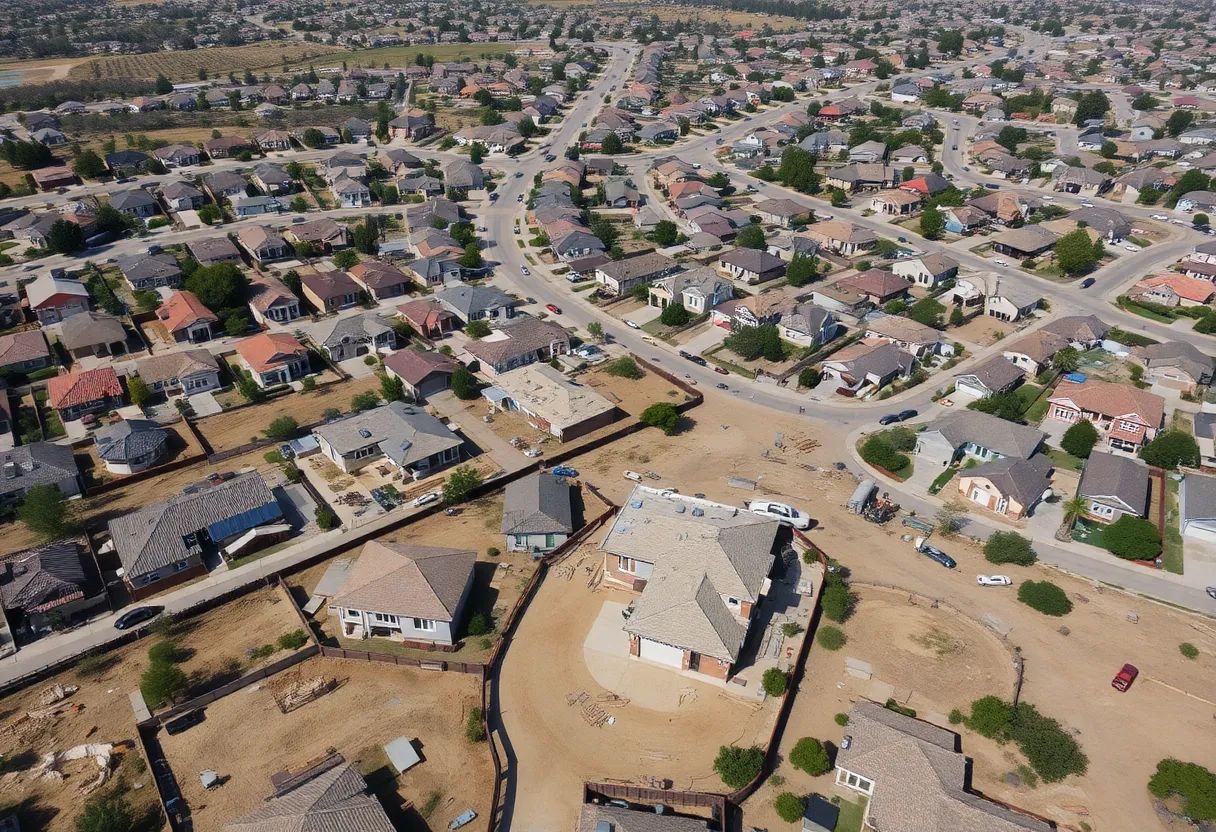News Summary
Six months after the Palisades Fire devastated California, recovery is ongoing. Homeowners face challenges amidst a changing real estate market, complicated insurance claims, and construction delays. With significant progress in permitting processes and new legislative measures, hopes for rebuilding are being tempered by persistent financial struggles faced by many affected residents.
California is experiencing ongoing recovery efforts six months after the devastating Palisades Fire, a crisis that resulted in the destruction of approximately 13,000 homes across affected areas, including Altadena. While progress is being made in rebuilding, challenges remain as homeowners and developers navigate a complex and slow process of recovery and construction.
Since the Palisades Fire, around 123 lots in the Pacific Palisades have changed hands, with roughly half acquired by corporations and the remaining by individual buyers. In nearby Altadena, the real estate market has seen a surge in activity with several investors purchasing multiple properties—one company has bought 16 homes while another has added 13 to their portfolio. However, many homeowners are struggling with financial hardships, reporting that they are underinsured and unable to meet mortgage payments for destroyed homes, along with the costs associated with renting and rebuilding.
The availability of land is also shifting. In Altadena, there is an increasing supply of vacant lots for sale, which is driving down prices by approximately $100,000 on properties previously valued at $1 million. In contrast, the Pacific Palisades is experiencing a reduction in available properties, creating a beneficial situation for fire victims looking to cash out, with the average price for a vacant lot currently standing at $2.2 million.
As the rebuilding process unfolds, construction timelines are estimated to take between one to one-and-a-half years, and approximately 50 homes are currently under construction in the Pacific Palisades. A significant number of permit applications have been submitted to city and county officials—around 900, with 274 approved for construction. The current approval process has improved markedly, reducing wait times to under two months, compared to the previous delays of 8-18 months. However, homeowners with more complicated construction plans may still face extended waits of over a year.
Governor Newsom has facilitated the permit process by suspending the California Coastal Act, which allows for a 10% increase in building size without triggering lengthy approval times. For homeowners wishing to exceed this limit, an additional fee of $11,579 and a potential 12-24 month wait for approval will apply. This regulatory shift is part of broader efforts to streamline rebuilding, but not without its challenges. Residents are also facing significant conflicts with insurance companies over claims, compounding their difficulties. Recent actions by State Farm dropping approximately 1,600 policies in the Palisades area have left many feeling severely underinsured.
Insurance payouts have reached a staggering $17.1 billion in 2025, setting a new record for wildfire damages, surpassing the previous high of $12 billion. Many rebuilding costs—such as for foundational and septic system developments—can reach between $2-3 million even before any construction begins. Furthermore, homeowners report confusion and miscommunication regarding new legislation aimed at aiding the rebuilding process.
Rumors on social media concerning changes to land use and housing density following the fire have prompted confusion regarding regulations. State Senator Benjamin Allen’s proposed SB 549 seeks to simplify the rebuilding authority, but it has met with resistance due to misunderstandings about its implications. This bill does not alter local zoning laws; instead, it is designed to streamline the process for fire survivors to purchase and reconstruct homes at discounted rates. Governor Newsom has reaffirmed the state’s dedication to assisting families in recovering from such devastating losses.
As recovery efforts continue, proposals are emerging to include mobile home parks and additional housing strategies to assist those displaced. The road to rebuilding remains fraught with obstacles, requiring substantial time, financial investment, and collective patience from all involved parties. The aftermath of the Palisades Fire is a stark reminder of the impact of such disasters and the urgent need for effective support systems for recovery.
Deeper Dive: News & Info About This Topic
- Fox News: California Wildfire Victims Face Uphill Battle
- Wikipedia: California Wildfires
- San Francisco Chronicle: LA Palisades Eaton Insurance
- Google Search: California Wildfires Insurance Issues
- LA Times: Affordable Housing Palisades Authority Failure
- Encyclopedia Britannica: Wildfire
- NBC Los Angeles: Recovery Efforts After Palisades Fire
- Google News: Palisades Fire Recovery

Author: STAFF HERE CORONADO
The Coronado Staff Writer represents the experienced team at HERECoronado.com, your go-to source for actionable local news and information in Coronado, San Diego County, and beyond. Specializing in "news you can use," we cover essential topics like product reviews for personal and business needs, local business directories, politics, real estate trends, neighborhood insights, and state news affecting the area—with deep expertise drawn from years of dedicated reporting and strong community input, including local press releases and business updates. We deliver top reporting on high-value events such as the Coronado Island Film Festival, productions at Lamb’s Players Theatre, community workshops at John D. Spreckels Center, and iconic celebrations at Hotel del Coronado. Our coverage extends to key organizations like the Coronado Chamber of Commerce and Visit Coronado, plus leading businesses in hospitality, dining, and tourism that drive the local economy. As part of the broader HERE network, including HERESanDiego.com, HEREHuntingtonBeach.com, HERELongBeach.com, and HERELosAngeles.com, we provide comprehensive, credible insights into Southern California's dynamic landscape.


